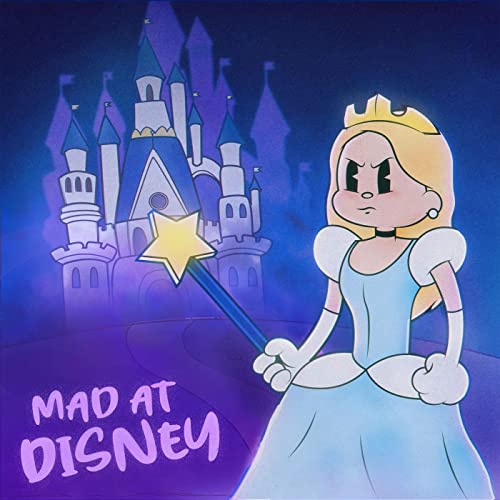
During a Grade 9 music class a few weeks ago, I had the opportunity to play a song that most of the students had not heard before. These are rare opportunities to get honest student feedback so I was eager to hear how they would respond. The song is MAD AT DISNEY by Salem Ilese, a tune that is going viral on Tik Tok but has not quite cracked the Billboard Top 100…yet. The song is being streamed millions of times a day and is #62 on the global Spotify Charts. More than that, this song takes on a multinational company who has made billions perpetuating a distorted romantic myth…
Immediately, there was a divide in the class regarding how they were responding. Tik Tok users and girls generally liked it. The boys in the class did not. One male student had a simple harsh critique. “It sounds like a Tik Tok song.” He spoke like Tik Tok songs were their own genre and I curiously asked the class to expand. What musical elements make a good Tik Tok song?
1) It’s short. Tik Tok videos only use a small part of the song so there is no need to make long songs.
2) It’s danceable. Tik Tok users want to dance to the song so it needs to be an easy tempo.
3) It’s full of musical hooks. The music is meant to support the video/dancing so it must be simple and connect.
When I shared that I liked this song, the look of surprise from the students was palpable. “Why?!” one female student exclaimed.
I explained that I found the song catchy AND I appreciated Salem Ilese’s critique of Disney’s romantic myth. Seeing the song in a new light, one male student was perplexed. Why did it take Salem Ilese 21 years to realize that Disney’s view of love was fake when it was so obvious to him?
I could explain that the creative industries target male and female consumers differently. The romantic myth from Disney mostly targets females. I ended by asking the class what myths are found in music that males may have trouble identifying?
How do you and your friends respond to this song? I’ve created the FREE mobile resource at www.engagingmusic.ca/bestmusic to help guide the discussion. Let me know how it goes!

ABOUT MICAH
Micah received a Masters of Popular Music Studies from the University of Glasgow and has worked several years in the music industries as a musician, critic, and band manager. He has a passion for helping audiences find better through discernment, critical-thinking, and empathy-development. He integrates the work of several Christian scholars such as Dr. Al Wolters and Andy Crouch alongside the latest research in behavioural psychology, sociology, and popular music studies.
